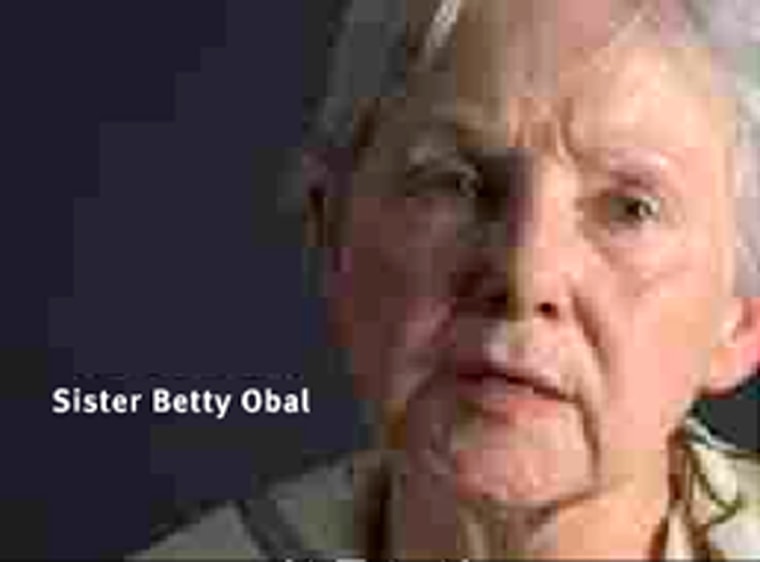A handful of American clergy of different faiths may have succeeded where the U.S. administration has failed. This week, a simple 30-second advertisement expressing disapproval of the abuse of prisoners at the Abu Ghraib prison in Iraq has aired on Arab television — and it has touched the heart of at least some skeptical viewers.
The ad, paid for by the organization FaithfulAmerica.org with funding from the private contributions of U.S. citizens, has been broadcast on two of the most popular Arab satellite channels, Al Jazeera and Al Arabiya.
The advertisement shows close-ups of a Presbyterian minister, a Muslim iman, a Catholic nun and a Jewish rabbi as they deliver the following message:
"A salaam aleikum [peace be upon you], As Americans of faith, we express our deep sorrow at abuses committed in Iraqi prisons. We stand in solidarity with all those in Iraq and everywhere who demand justice and human dignity. We condemn the sinful and systemic abuses committed in our name, and pledge to work and right these wrongs."
Message positively received
"It is a message of peace," said Hussein Amin, a media analyst and professor of mass communications at American University of Cairo.
Amin believes it will have a positive effect on the Arab audience, and like others, thinks it should be broadcast in the United States as well. "I like it," said Amin.
Senior political analyst Gamal Abdul Gawad also believes people in the region will be receptive to the message.
"I think it is a good idea," he said. "People have heard apologies coming from American officials, but measures that have been taken haven't convinced them that the apologies are sincere.
"But hearing apologies from religious Americans struck a chord here. People are more ready to hear messages from civil society, bringing together Christians, Jewish and Muslim clerics."
Gawad believes the ads will be much more effective than the ongoing official U.S. public relations campaign.
Attempts by the administration to influence Arab public opinion via Arab media have been met with cynicism. But some view this message from the clergy as a call from the heart, and it has been received with unaccustomed enthusiasm.
"It's really nice of them, if they do really mean it, it's really nice of them. The whole idea is nice. Priests, all religious leaders, the three major religions are represented," said Saudi university student Majid Fahmy.
"It's pretty cool stuff! The emphasis is on strong words. It really reaches you," said Egyptian student Tony Amr.
Religious message helps, but still skepticism
Because religion is an important part of the Arab culture, hearing the message from religious people makes it more credible. But while Gawad called it "a big step forward," he cautioned not to expect radical change.
Mistrust dies hard. Some skeptics see the ads as a new ploy by the U.S. administration to win over public opinion.
"The U.S. government is playing games. I think it is American government funded," said Sherif Fahmy, 21. He wants to see actions, not words.
"It makes no difference. To make a difference, you need to show something, not just people, show a change. Something you can grasp hold of."
Nermin Saber, an Egyptian woman, agreed. "I think it is government propaganda to calm down the situation. They used those people," she said.
And while the skeptical view also is prevalent, the ad could go some distance toward narrowing the rift between Arabs and Americans.
That's no small feat when many in this region see the wars in Iraq and Afghanistan as a war on Islam rather than terrorism.
"Maybe other activities of this kind could be helpful in improving things, at least a little bit," said Gawad, the political analyst.
